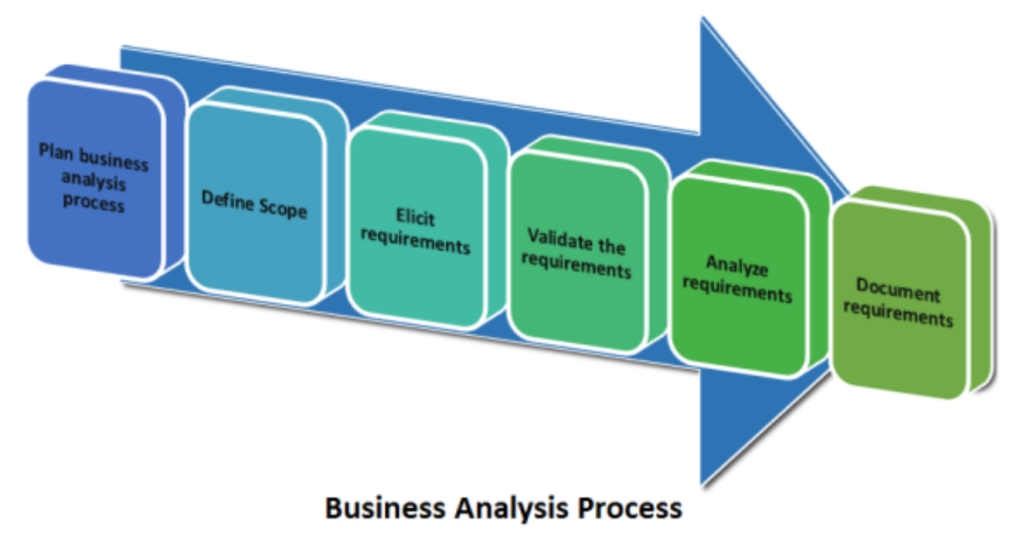Mastering Business Analysis: Top 10 Tips to Jumpstart Your Career
Top 10 Tips to Jumpstart Your Career.
Are you trying to break into the world of Business Analysis? Business Analyst is a career that strikes a balance between leadership and technology expertise. It’s both demanding and fulfilling, pushing individuals to venture beyond their comfort zones and unleash their full potential.

Business Analyst Keshala Wickrama Gunaratne shares her top ten tips on how to step into a Business Analysis career.
- Build your skills.
Business analysis requires a variety of skills including communication, problem-solving, creative thinking, active listening, facilitation, conflict resolution, and more. You must learn how to interact with multiple stakeholders such as project sponsors, end users, and business-side users such as suppliers.
If you have already built up these skills from your current or previous roles, then you’re one step ahead. These skills are transferrable to a business analysis space. Otherwise, look for opportunities to build these skills through training, taking courses, or by new challenges at work.
2. Learn the Business Analysis Process.
Like any other activity, business analysis also follows a process. The Global Business Analysis Standard | IIBA provides free, informative resources describing how business analysis is actually performed. Below is a high-level view of a standard task a BA might perform.

3. Understanding the value a Business Analyst brings.
A business analyst works in a multifaceted world. In order to meet all the business needs a business analyst has to act as a mediator, moderator, facilitator, connector, and ambassador. They bridge the gap between each department throughout every development stage and engage with stakeholders to understand and respond to the needs in rapidly changing business environments.
4. Learn requirements modeling and management tools.
BA’s use many tools and techniques as part of their work. Some of the popular tools are business process modeling, Use case modeling, user story mapping, and software development lifecycle. Microsoft Visio is a very popular tool that most organisations use for process mapping. There are also free resources available that offer business analysis books and tools to help build your knowledge, such as ‘Success Guaranteed Business Analyst Training and Consulting’
5. Learn the industry or domain of your interest.
When you understand your domain and your organisation, your stakeholders’ expectations of you as a business analyst will increase greatly. This presents an excellent opportunity to enhance your skills and deepen your understanding of the industry or domain you are currently engaged in. For instance, if you work in logistics, seek a handbook that provides insights into the logistics domain’s operations.
6. Get experience.
Experience is important when trying to break into a new field. Consider taking on projects at work that allow you to use business analysis skills or volunteer for projects outside of work. Roles such as business process analyst, reporting analyst, or systems analyst will teach you certain aspects of business and make you ready to become a business analysis professional.

7. Build your network.
Networking is essential when you’re getting started in any new role, especially in Tasmania where many job opportunities come through personal connections. Be active on networking platforms such as LinkedIn, attend local chapter events, or join a virtual community of practice to connect with other business analysis professionals in your area or around the world.
8. Stay up to date.
Business analysis is rapidly evolving. Joining a professional association like IIBA, and attending conferences or events related to business analysis domain can help you stay up to date with industry trends and access resources that can help you advance your career.
9. Create a Portfolio.
Creating a portfolio can help showcase your skills and experience to potential employers. Include examples of projects you’ve worked on, any certifications you’ve earned, and any other relevant information. Once you’ve gained some experience and built up your skills, it’s time to start applying for jobs.
10. Get yourself certified.
A certified business analyst has a broader perspective of the BA techniques and approaches. For those who are stepping into the business analysis domain, Business Analysis Certification, ECBA™ | IIBA® is a good choice. ECBA not only gives a solid foundation for getting into the BA profession but also gives you a globally recognised certificate.
Did you enjoy this article? Explore more topics on our Experience page.
This article was written my former 2PM Business Analyst, Keshala Wickrama Gunaratne.
